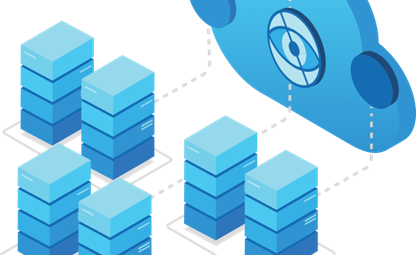03 Jun 2016
What Are Three of the Top Software Development Tools on the Market Today?

With the advent of Big Data, the Internet of Things (IoT), cloud computing, and upwards of 7.9 billion mobile devices (according to a 2015 statistic from cisco.com), the world of software development is certainly interesting, and is getting more so all the time. A question we might ask is: What are three of the latest and best Software Development Tools, and how might they give us an idea of where software development is headed?
1. Ultimate Digital Test Coverage Toolkit by Perfecto Mobile, Inc.
“A common challenge for teams developing or scaling their test strategies across web and mobile is making the decision of which devices, browsers and geographies to include in their test plans,” said Eran Kinsbruner, Technical Evangelist at Perfecto, in an article in Software Development Times titled Perfecto Releases Ultimate Digital Testing Toolkit to guide data-driven testing decisions. "Perfecto Mobile, the market leader in empowering enterprises to deliver high-quality digital experiences, today announced the availability of their Ultimate Digital Test Coverage Toolkit, a free “starter package” that guides Test, DevOps and Product Development teams to make better-informed decisions about their web and mobile test strategies across devices and geographies." What a relief!
2. Docker by Docker, Inc.
"Overall, Chef, Puppet, and Docker are the top three DevOps tools (on 32 percent, 32 percent, and 27 percent, respectively). However, Docker is the fastest growing with adoption more than doubling year-over-year from 13 percent in 2015 to 27 percent in 2016. In the enterprise, Docker also saw more than two times growth (from 14 percent to 29 percent)," according to Ian Barker in an article titled DevOps and Docker adoption take off in the enterprize. What is Docker and why all the fuss? The answer is that Docker provides "an entire runtime environment: an application, plus all its dependencies, libraries and other binaries, and configuration files needed to run it, bundled into one package," according to Paul Rubens in an article titled What are containers and why do you need them? "Containers (i.e., container solutions, like Docker) are a solution to the problem of how to get software to run reliably when moved from one computing environment to another. This could be from a developer''s laptop to a test environment, from a staging environment into production and perhaps from a physical machine in a data center to a virtual machine in a private or public cloud." The following quote by Aaron Stone from a blog titled Get Your DevOps Contained! illustrates how Docker is able to allow things to run together inside of a single operating system that, without the Docker (container) implementation, would not be able to: "One of the major differences that makes Docker work so well in the agency environment is that Docker containers can exist as peers in a single OS, but contain different versions of runtime libraries that would create catastrophic collisions in a global installation. For example, you can run Java 1.7 in one container and Java 1.8 simultaneously in another without conflict." This amazing versatility is of course why Docker has become so popular.
3. Chat Platform (including HipChat and Confluence) by Atlassian
"Teamwork is undergoing a huge revolution...The days of communicating via email are gone with the advent of chat boxes that allow people to easily access and exchange ideas, documents and even office banter with colleagues," according to Olivia Chang, How Altassian sees the future of teamwork collaboration. "One company leading this new wave of teamwork collaboration is Australian software company Atlassian, whose mission is transforming office communication through products such as Hipchat and Confluence." Although these great chat tools were designed initially for collaboration among software developers, they quickly became universally popular, spreading out in other corporate areas such as marketing and sales. What of the future? "Business Insider recently spoke to Sean Regan, head of growth at Hipchat, about the future of teamwork collaboration — here’s what he had to say. Regan says this market is just getting started and that chat tools will eventually become “the dominant platforms of the next decade”, according to the same article quoted above.
Please contact us for more information.


